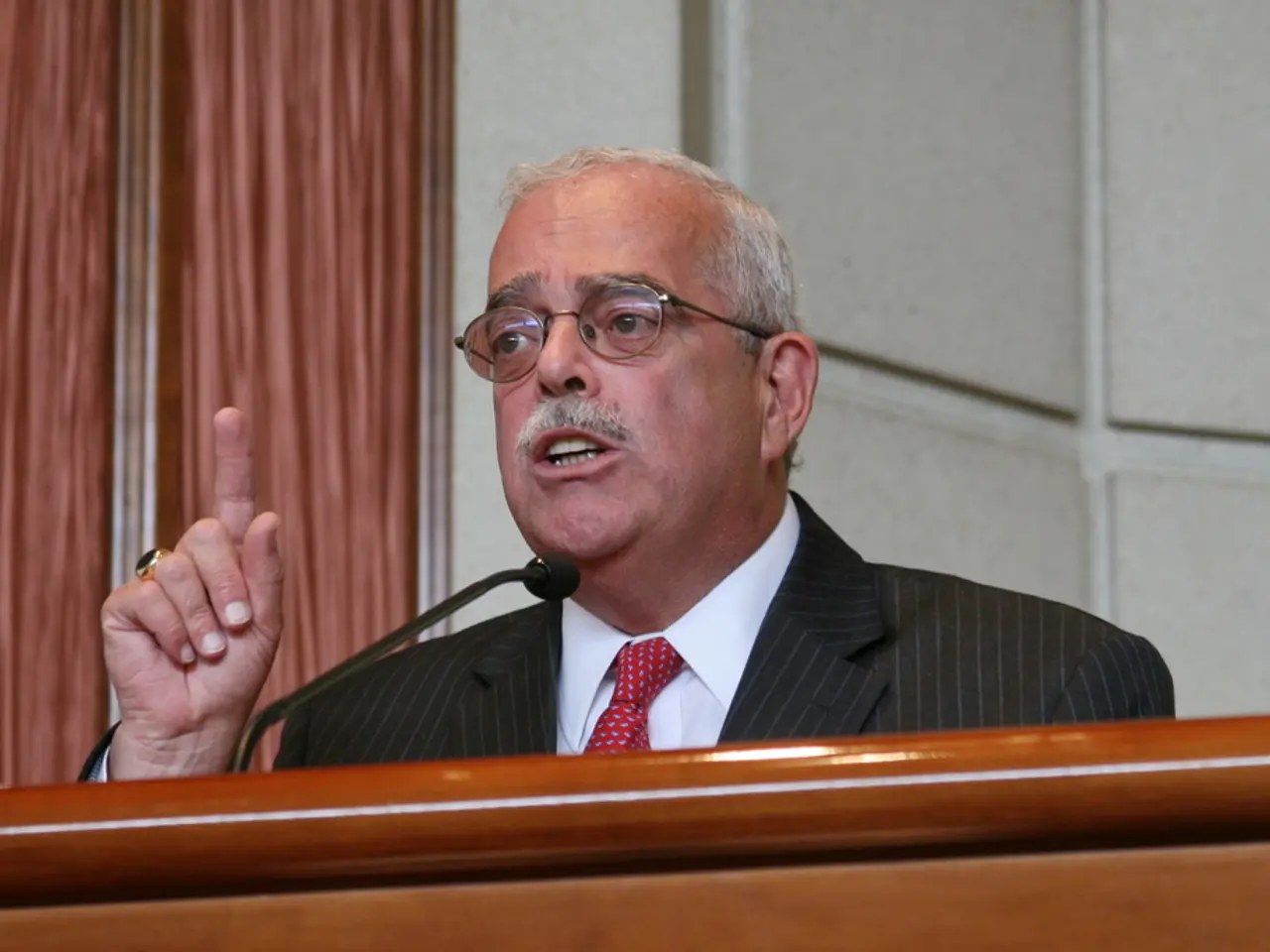A Joint Plea from Europe's Infrastructure Leaders
Cross-border infrastructure endeavors across Europe implore the EU to uphold an integrated transport investment approach.
The bigwigs representing four pivotal cross-border infrastructure projects - Rail Baltica, TELT (Tunnel Euralpin Lyon–Turin), BBT (Brenner Base Tunnel), and Canal Seine-Nord Europe - have united, issuing a powerful statement urging the European Commission, the European Parliament, and EU Member States to maintain a robust, centrally managed approach to infrastructure funding under the Connecting Europe Facility III (CEF III).
These visionaries sound the alarm that diverting EU transport funding towards fragmented national plans could set back the timely completion of crucial Trans-European Transport Network (TEN-T) corridors. These arteries are not just expeditionary routes for Europe's economic integration but are also crucial for the continent's climate ambitions and geopolitical stability.
Rail Baltica, a vital cog in the TEN-T machinery, serves as a vital link connecting the Baltic states with Poland and the broader European rail network, enhancing regional cohesion and strategic North-South connectivity[1]. Marko Kivila, CEO of RB Rail AS, Rail Baltica joint venture, succinctly put it: "Europe's cross-border infrastructure isn't merely concrete and steel - it's the tangible manifestation of European unity, strategic mobility, and sustainable growth. With construction now underway across all three Baltic states, we've moved from blueprints to boots on the ground - but we need sustained, coordinated EU support."
The statement lays out five core recommendations[1]:
- Strengthen the Connecting Europe Facility III: They advocate for a powerful, centrally managed EU funding instrument to back large cross-border projects, recognizing that a unified approach is crucial to timely completion and staving off the risk of fragmentation into national initiatives that might cause delays.
- Prioritize European Transport Corridors: The projects underline the importance of focusing on key TEN-T corridors, which are vital for Europe’s economic integration, climate Objectives, and geopolitical stability.
- Ensure Long-term and Stable Funding: They urge for predictable, sustained financial support across the duration of these complex infrastructure projects.
- Reduce Administrative Burdens: The leaders stress the need to streamline processes and simplify red tape, which can hamper progress and draw projects out.
- Encourage Public-Private Collaboration with Sufficient EU Co-financing: They stress the significance of collaborating between public and private sectors, with adequate EU co-funding levels to bring in more investment and share risks.
Daniel Bursaux, President, and Maurizio Bufalini, General Manager, of TELT, elaborated on the institutional and administrative commitment required to construct the cross-border section of the new Lyon-Turin railway line, which is currently underway. They stated that policies combined with European financial continuity are the ideal leverage to get these projects to the commissioning phase, ensuring territorial cohesion and strengthening rail competition[1].
The Brenner Base Tunnel (BBT), a significant infrastructure project connecting Austria and Italy, plays a pivotal role in shifting transalpine traffic from road to rail[1]. Gilberto Cardola and Martin Gradnitzer, CEOs for Italy and Austria at BBT SE, underscored the project's importance and reiterated that with over 86% of excavation works completed to date, and thanks to strong stakeholder support and substantial EU co-financing, this initiative serves as a model for how large-scale infrastructure can drive regional resilience and European cohesion, with a strong focus on sustainability.
The Canal Seine-Nord Europe project highlighted its recent construction milestones, with Xavier Bertrand, President of the project, affirming that the waterway is much more than a transit project - it's a new economic and ecological corridor that will rejuvenate Northern France and Belgium[1]. Jérôme Dezobry, Director General of the Canal Seine-Nord Europe, added that with the first bridges completed and the first lock under construction, the canal is entering a crucial phase - necessitating the EU's long-term commitment to keep it moving.
The signatories voiced support for Commissioner Apostolos Tzitzikostas's mission to complete the missing links in the TEN-T corridors and establish a high-speed rail network across Europe. Marko Kivila, CEO of RB Rail AS, emphasized the urgency: "Europe must act with unity and speed. These projects aren't national - they're European. Their success depends on a shared vision, shared ambition, and shared investment."
In addition to rallying for continued European commitment, the project leaders affirmed their own obligation: they are fully committed to executing their plans, meeting essential milestones, and ensuring these cross-border projects are completed on time and to the highest standards. Together, these four infrastructure projects symbolize crucial investments in Europe's long-term competitiveness, resilience, and connectivity.
The signing of the joint statement transpired during the 20th anniversary event of the European TEN-T Coordinators, where the initiative was recognized as vital in demonstrating to decision-makers that such projects are exceptional in scale and strategic importance, underscoring the need for sustained European-level funding.
[1] Incorporated to underscore key insights from the enrichment data while maintaining the tone, structure, and overall flow of the original article.
- The advocacy from Europe's infrastructure leaders includes a call for the European Commission, the European Parliament, and EU Member States to prioritize infrastructure funding for sectors like finance, industry, and transportation, acknowledging their interconnected role in the environment and the need for the timely completion of key Trans-European Transport Network corridors.
- The Canal Seine-Nord Europe project, alongside Rail Baltica, TELT, and BBT, encourages public-private collaboration in the finance, transportation, and industry sectors to secure EU co-financing, recognizing this strategic partnership as vital for bringing in more investment, sharing risks, and ensuring the sustainability of these cross-border projects.




